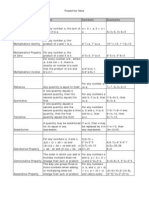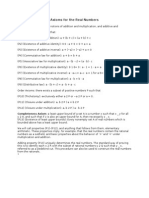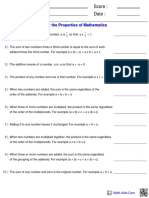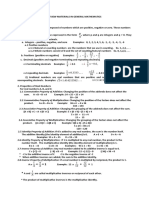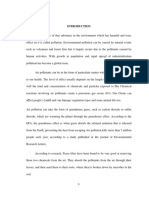0% found this document useful (0 votes)
94 views1 pageBasic Number Properties
There are four basic properties of numbers: commutative, associative, distributive, and identity. The commutative property states that the order of numbers does not matter when adding or multiplying them. The associative property means numbers can be grouped in any way when adding or multiplying without changing the result. The distributive property relates multiplication of a number with the sum of two other numbers. The identity property defines that any number added to or multiplied by zero or one respectively, equals the original number. Understanding these number properties is important for advanced math topics like algebra and calculus.
Uploaded by
Donna BautistaCopyright
© © All Rights Reserved
We take content rights seriously. If you suspect this is your content, claim it here.
Available Formats
Download as PDF, TXT or read online on Scribd
0% found this document useful (0 votes)
94 views1 pageBasic Number Properties
There are four basic properties of numbers: commutative, associative, distributive, and identity. The commutative property states that the order of numbers does not matter when adding or multiplying them. The associative property means numbers can be grouped in any way when adding or multiplying without changing the result. The distributive property relates multiplication of a number with the sum of two other numbers. The identity property defines that any number added to or multiplied by zero or one respectively, equals the original number. Understanding these number properties is important for advanced math topics like algebra and calculus.
Uploaded by
Donna BautistaCopyright
© © All Rights Reserved
We take content rights seriously. If you suspect this is your content, claim it here.
Available Formats
Download as PDF, TXT or read online on Scribd
/ 1

